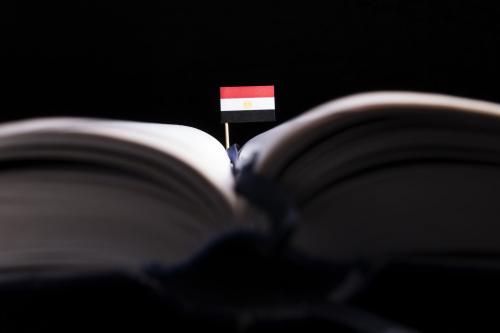This is the third in a series of blogs that look at the experiences of Syrian refugee children and their teachers.
Aaron is a teacher whose classroom is full of infectious energy. In his spare time, he reads about cognitive behavioral therapy to try to meet the needs of his Syrian refugee students. The first blog in this series described ways in which he tailored his instruction to the needs of his students at a non-formal school in Lebanon. Aaron no longer teaches at the Irada City School. Eight months ago, he was resettled to Canada. While the impacts of ongoing migration to countries in Europe are widely discussed in international media, the implications on countries of first asylum are little explored. Educated, resourceful, and young, teachers of refugees are often resettled, leaving gaps in education for refugees in countries of first asylum.
Teachers pursue their own futures and must leave their refugee students behind
When Aaron was in Damascus, Syria, he saw his life laid out for him in a straight line. But since the war started, Aaron has had the feeling that this line has been “interrupted” and “cut into pieces” with the “loose ends all over.” Aaron never intended to flee to Lebanon; he never intended to become a teacher. His original plan for surviving the Syrian war was to hide in the basement of his mother’s home with stacks of English translations of Russian novels and to keep reading until the war ended. He bought the books but had to abandon the plan and the heavy volumes once it became obvious he would have no choice but to leave the country. Since that time, Aaron has been in search of “a destination.”
For around 20 months, teaching at the Irada City School was this destination for Aaron. He loved working with the children and their progress gave his otherwise uncertain life meaning. Yet the immense challenges of this work also took their toll on Aaron. He described how it can be too hard to assume the responsibility for so many lives when you cannot control your own future. “I cannot give anymore…” he said. “I just feel completely drained.”
Despite the critical role he was playing in educating young Syrians, Aaron needed to focus on building his own future, and he moved onward to Canada to continue the search for his destination.
Refugee parents seek belonging for their children
Hadia, Aaron’s colleague at Irada Valley School, faces a very similar and difficult choice. Even while trying to create futures for other Syrian refugee children in Lebanon, she has not been able to see a future for her own children. This is not for lack of trying.
Soon after arriving in Lebanon, Hadia enrolled her children in private school, until her family was asked to leave as they had been unable to continue paying school fees. She then found a private sponsor to pay for tuition at a new private school, a special school that might be able to meet the needs of her deaf son. He thrived there—he “was starting to speak and learn,” Hadia said. But then he was pushed by two boys, in what Hadia feels certain was an incident motivated by hatred of refugees. He fell on his head, and broke the cochlear implant that made it possible for him to hear. “My son does not speak now,” she told us in soft monotone.
Hadia knew that her family could not stay in Lebanon; her son no longer felt safe. She and her husband made the desperate decision to take their son to Germany. His father left with him while Hadia remained in Lebanon. Through Turkey, into Greece, and now finally in Germany, Hadia hopes her husband has found a place where, as she said, “my son would be able to settle and learn.” Currently, she said, “it’s all about the boy… of course later [my husband] will look for a job, after learning the language.”
Hadia does not know what she will do. She knows that she must be with her family, but she does not know how long it will take to be reunited in Germany. And she does not want to leave her students behind, just as they are beginning to make progress.
Hadia is not alone in her ambivalence. For most refugees, ongoing migration is a last resort, when conditions of conflict in Syria and of exile—in this case, in Lebanon—become unsafe. Parents make desperate decisions to move again, through danger, when they cannot imagine futures for their children.
Yet so many refugee children just want to be home. When Hadia asked one of her young students what she wanted to grow up to be, the girl said without missing a beat that she wanted to be a pilot. Why? “Because,” said Hadia, “[my students] want to go back to Syria. I asked, ‘No one wants to go to another country besides Syria?’ They said, ‘Not at all.’” This little girl imagines herself as a pilot, bringing Syrians from all over the world back home to Syria.
Teachers face the same difficult decisions as their students as they try to imagine their futures in Lebanon, in migrating onward, or in returning to Syria. They also feel an additional responsibility: they feel responsible for their own futures, the futures of their children, and the futures of the children in their classrooms. It is a sacrifice to stay and a sacrifice to leave. We find, though, that when school creates environments of belonging, refugee families often chose to stay. These schools, in fact, can become the “destination” Aaron seeks, the center of lives in exile, and the cornerstones of possible futures.
Editor’s note: The authors have used pseudonyms to replace the names of individual teachers and schools referenced in this blog in order to protect their privacy.


Commentary
Inside Syrian Refugee Schools: In their search for a destination, teachers face difficult choices
February 24, 2016